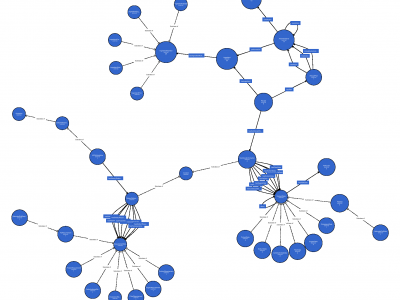Datasets
Standard Dataset
UNL Dictionary for French Cooking

- Citation Author(s):
- Submitted by:
- Andres Frederic
- Last updated:
- Wed, 09/25/2024 - 09:50
- DOI:
- 10.21227/svqr-ys78
- Data Format:
- License:
 32 Views
32 Views- Categories:
- Keywords:
0 ratings - Please login to submit your rating.
Abstract
The Universal Networking Language (UNL) is a pioneering framework designed to facilitate seamless communication and knowledge sharing across different languages and cultures. This UNL French Dictionary focuses specifically on the rich and diverse world of French cuisine, offering a structured representation of culinary terms, ingredients, cooking techniques, and descriptors in French alongside their universal equivalents.
Purpose and Importance:
The UNL French Dictionary serves several key purposes:
- Enhancing Communication: By bridging linguistic gaps, it enables chefs, culinary enthusiasts, educators, and researchers to share recipes, techniques, and culinary knowledge effectively across language barriers.
- Cultural Appreciation: The dictionary highlights the unique aspects of French culinary arts, preserving traditional cooking methods and regional ingredients, while promoting global appreciation for French cuisine.
- Educational Resource: It provides a valuable tool for culinary students and instructors, enriching their understanding of essential terminology in the context of French cooking.
Special Instructions for Use:
-
Navigating the Dictionary:
- Users can search for specific French culinary terms to find their corresponding UNL representations.
- The entries are categorized into cooking actions, ingredients, tools, measurements, and descriptors, facilitating easy access to information.
-
Practical Applications:
- For Chefs: Use the dictionary to translate recipes and culinary instructions for international collaboration or when working with diverse clientele.
- For Educators: Integrate the dictionary into culinary training programs to enhance students' vocabulary and understanding of French cooking traditions.
- For Researchers: Utilize the dictionary as a reference for studies focused on culinary practices, food culture, and the globalization of cuisine.
-
Contributing to the Dictionary:
- Users are encouraged to suggest new terms or revisions based on their culinary expertise and experiences, ensuring the dictionary remains up-to-date and comprehensive.
-
Cultural Context:
- When using the dictionary, consider the cultural significance of terms and ingredients, as many reflect the history and diversity of French culinary traditions.
Instructions:
Getting Started
-
Accessing the Dictionary:
- Ensure you have access to the digital or printed version of the UNL French Dictionary.
- Familiarize yourself with the layout, including the main categories and sections.
-
Preparation:
- Have a notepad or digital device ready to take notes on new terms and concepts.
- If you're a chef or educator, consider preparing specific recipes or lesson plans that you wish to translate or enhance using the dictionary.
Using the Dictionary
Searching for Terms
- Keyword Search:
- Use the search feature (if available) to quickly locate a specific term by entering its French spelling.
- Category Browsing:
- Navigate through the dictionary by selecting a category (e.g., Cooking Actions, Ingredients) to find relevant terms.








